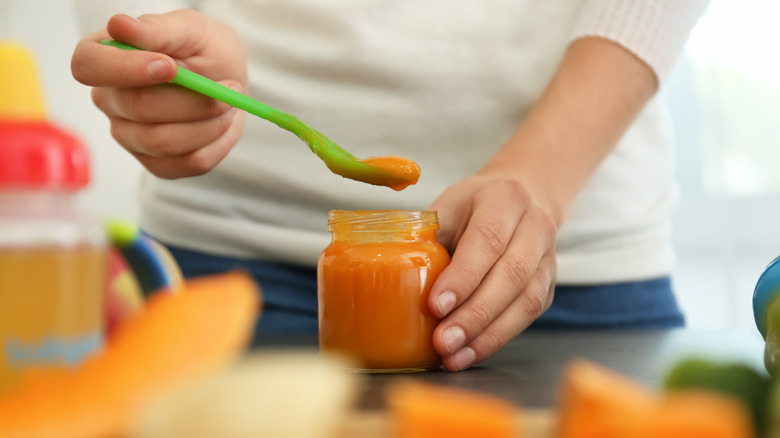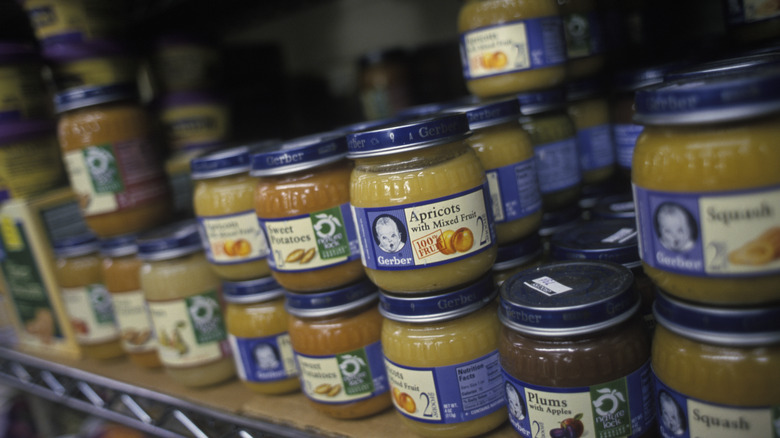New Study Finds Heavy Metals Still Present In Popular Baby Foods
Baby foods are often purer than adult food, as many top brands make them primarily out of pureed fruits and vegetables. But according to a new study released by Consumer Reports, several popular baby food brands have "concerning levels" of heavy metals, including lead, arsenic, and cadmium. The latest research was a follow-up to a test Consumer Reports performed in 2018. Initially, 50 different baby foods were evaluated for heavy metals, 33 of which the organization said were associated with potential health risks.
Since then, heavy metal levels showed to be lower in three of the re-tested items, while increased levels were seen in three others. Brands like All but Hot Kid, Beech-Nut, Gerber, and Happy Baby were part of the review, with some companies saying they test their items for heavy metals, while others don't. Researchers found that snack foods and items containing rice and sweet potatoes showed the highest heavy metal levels. And organic products aren't exempt either, since organic brands like Earth's Best were included in the study.
And yet, Eric Boring, a Consumer Reports chemist involved in the research, said there was no reason to panic. "An occasional serving of even one of the foods with the highest levels is generally OK," he explained in the report. "Just remember to mix up what your kids eat."
Heavy metals in baby food isn't a new problem
The presence of heavy metals in popular foods isn't as rare as one may hope. For example, Consumer Reports recently found lead in dark chocolate from Trader Joe's, Lindt, and more. But for babies, it may be particularly worrisome. According to the American Academy of Pediatrics, small levels of blood lead concentrations may impact academic abilities, problem behaviors, and attention deficits in children. However, the new Consumer Reports study revealed that some brands have higher heavy metal levels than others — and instead of eliminating these products from your baby's diet completely, it may be beneficial to adhere to the study's recommended serving sizes. In general, it's a good idea to expose your child to a wide variety of nutritious foods.
As of today, it may be unavoidable for these substances to get into baby food products. When polluted water, washed into lakes and rivers by the rain, is used on the soil that grows fruits and vegetables, the result is heavy metals in your food. In January 2023, the U.S. Food and Drug Administration issued a statement that will allow it to crack down on companies using more lead in their baby food products than the new limits allow. It's a step in the right direction, although it's clear heavy metals persist in baby food for now.

